- The definitive guide for the asian experience dreamers
- The cost of living in Singapore
- Useful information for living in Singapore
- Living in Singapore as young professionals: the economy of Singapore
- Living in Singapore as an University student
- The best areas to live in Singapore for rent
- Time off and Culture: what’s it like living in Singapore?
- Procedures and Documents for relocating to Singapore
- Living in Singapore as an offsite: tips for Expats
- In conclusion: is living in Singapore a good choice?
The definitive guide for the asian experience dreamers
Singapore, a vibrant city-state in Southeast Asia, attracts thousands annually, eager to discover what living in Singapore truly means.
Singapore is the world’s fourth major financial center and a cosmopolitan city with significant international trade and finance presence, its port ranks among the top five globally in terms of activity and traffic.
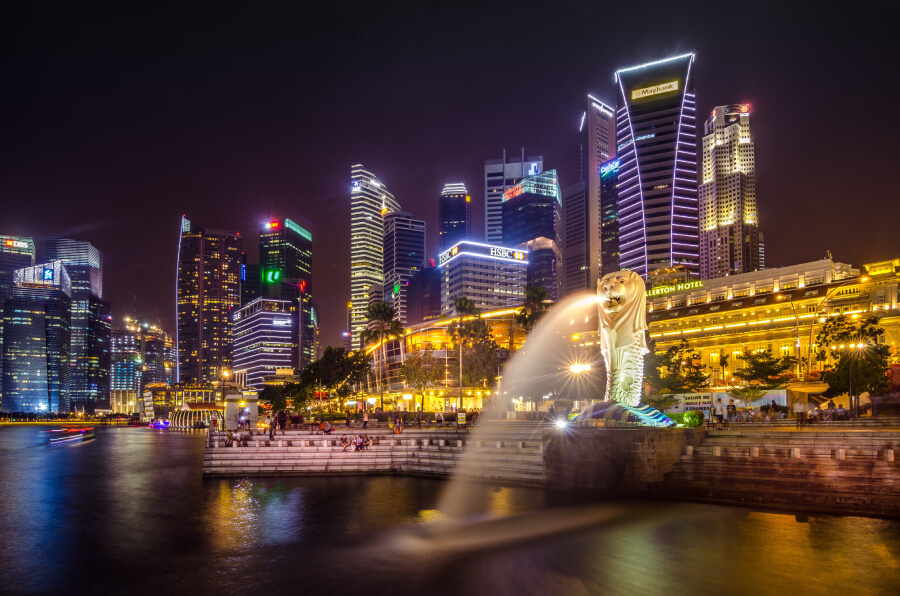
Living in Singapore might not be for everyone, but the experience is undoubtedly fascinating and enriching.
If you’re considering relocating to this Asian metropolis, here’s a comprehensive guide, from the cost of living and rent to leisure, culture, and necessary relocation procedures.
The cost of living in Singapore
Understanding the cost of living in Singapore is crucial before packing your bags. Known as one of the world’s most expensive cities, Singapore nevertheless offers a high standard of living.
Rental prices vary greatly depending on location and housing type: a city center apartment can be significantly more expensive than one in the suburbs.
However, for those seeking housing solutions, rental platforms like Spacest provide a wide range of options for all budgets: discover the best rental listings in Singapore.
Useful information for living in Singapore
If you’re planning to move and live in Singapore, here are some essential facts you need to know before embarking on your journey. Below is all the useful information to organize your new life in Singapore:
- Time zone: +7 hours compared to Italy; +6 hours when daylight saving time is in effect in Italy;
- Official languages: English, Mandarin, Malay, and Tamil;
- Currency: Singapore Dollar (SGD). 1.00 Euro is approximately 1.5908 Singapore Dollars.
- Climate: Singapore has an equatorial climate with high humidity (up to 100%) and temperatures ranging between 25°C and 35°C (77°F – 95°F) throughout the year;
- Healthcare: The country offers high-level hospital facilities, but the cost of services can be quite high.
Living in Singapore as young professionals: the economy of Singapore
Often described as one of the “Asian Tigers,” Singapore is renowned for its solid and dynamic economy. Understanding the local economy’s nuances is essential if you’re considering living in Singapore for work.

Here are the key points for those considering a move to Singapore for work-related reasons:
- Financial and commercial center: Singapore is a major financial and commercial hub, offering numerous opportunities in sectors such as banking, insurance, investments, logistics, and international trade;
- Innovation and Technology: The city-state is at the forefront of technological innovation and research, with a particular focus on IT, biomedicine, and life sciences, attracting professionals and researchers from around the world;
- Pro-Business environment: Singapore is known for its business-friendly policies, competitive tax system, and efficient bureaucracy, making it an attractive place for entrepreneurs and international companies;
- Opportunities for expats: With a multicultural work environment and widespread use of English, Singapore welcomes foreign professionals, offering them numerous career opportunities in various sectors.
- Challenges: despite the many opportunities, it’s important to consider the relatively high cost of living and the competitiveness of the job market. Distinctive skills and solid work experience are essential to live in Singapore as a professional.
And if you are looking for accommodation to start your new professional adventure, take a look at the best apartment rental adverts in Singapore.
Living in Singapore as an University student
Singapore is home to some of the best universities in Asia and the world, such as the National University of Singapore (NUS) and the Nanyang Technological University (NTU). These institutions offer a wide range of courses in various fields, from engineering and sciences to business and arts, with a strong focus on research and innovation.
Studying in Singapore means immersing yourself in an environment rich in cultural diversity. Students have the opportunity to interact with peers from around the world, enriching their educational and personal experience. Moreover, English being the primary language of instruction makes it easier for international students to adapt.
For accommodation, apart from university campuses and residences, students can choose to live off-campus rooms in shared apartments, which can be more economical.
Job and internship opportunities: Singapore is an economic hub with many multinationals and startups. This offers university students excellent opportunities for internships and part-time work experiences, enriching their resumes and providing valuable insights into the world of work.
Singaporean universities provide extensive support networks for international students, including orientation services, assistance in finding accommodation, and advice on adapting to city life.
The best areas to live in Singapore for rent
Choosing the right neighborhood is crucial when deciding to live in Singapore. Each area offers a unique experience, with significant variations in terms of atmosphere, services, and rental costs. Here are some of the best areas to live in Singapore, ideal for those looking for a rental in this vibrant city-state.
Marina Bay: luxury and urban panorama
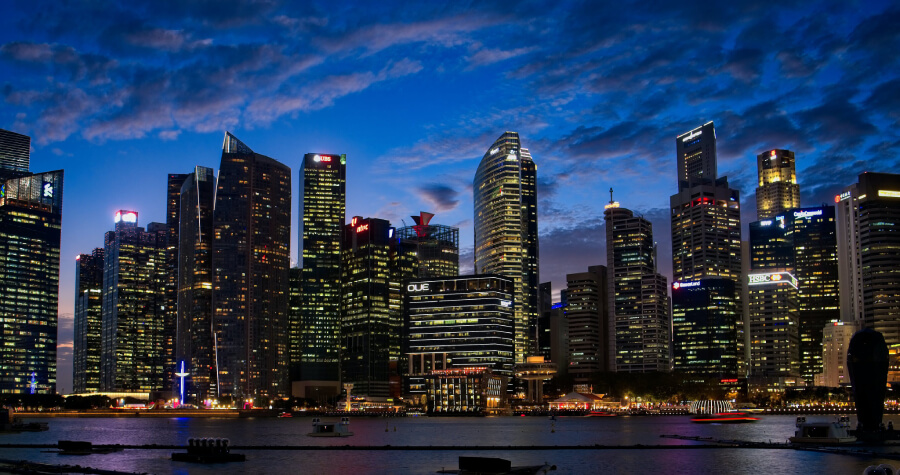
Marina Bay symbolizes the luxury and modernity of Singapore. This area is perfect for those seeking a high-profile urban environment, with access to luxury restaurants, exclusive shopping centers, and tourist attractions like Marina Bay Sands and the Singapore Flyer. Rentals here are among the highest but offer breathtaking views and a top-tier living experience.
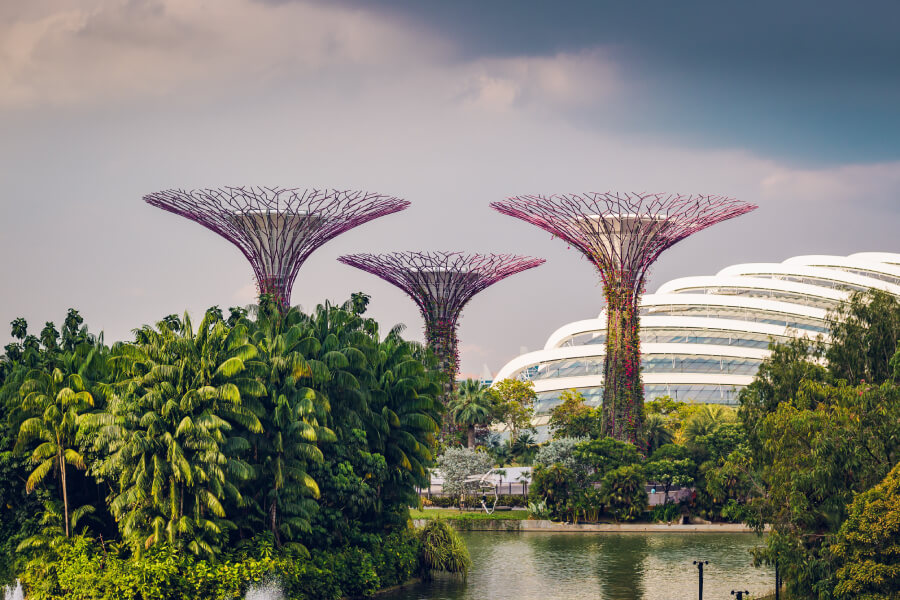
Tiong Bahru: historic and trendy
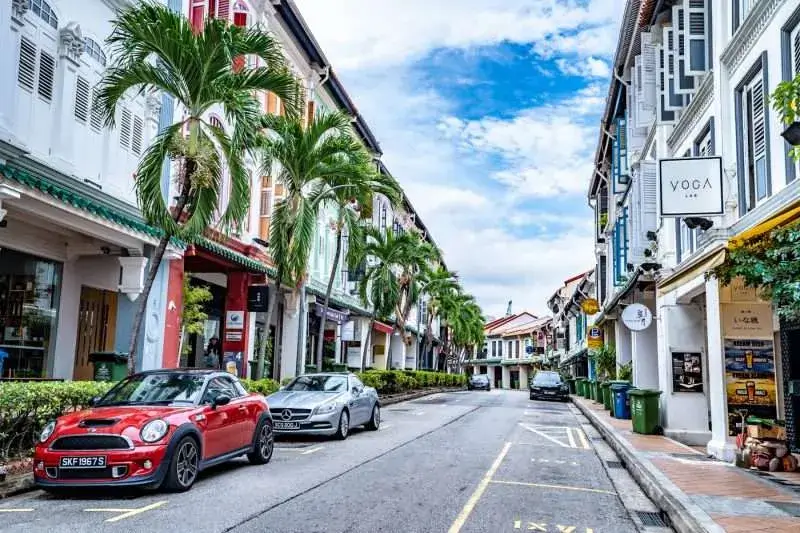
Tiong Bahru is a neighborhood that combines historical charm with modern trends. With its art deco buildings and a lively scene of cafes and independent shops, it’s ideal for those looking for a bohemian atmosphere. Rentals are more affordable compared to Marina Bay, making it an attractive option for young professionals and artists.
Orchard: shopping paradise
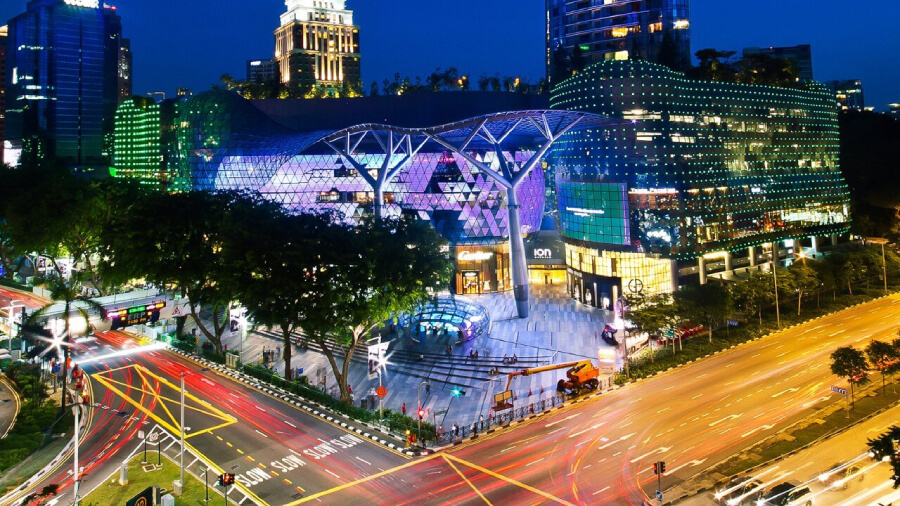
Orchard Road, known as Singapore’s shopping paradise, offers not only top-notch shopping centers but also a variety of housing options. If you love being in the heart of the action and having immediate access to restaurants, bars, and shops, Orchard might be the right choice. Rentals vary, offering both luxury and more affordable options.
Holland Village: lively and international
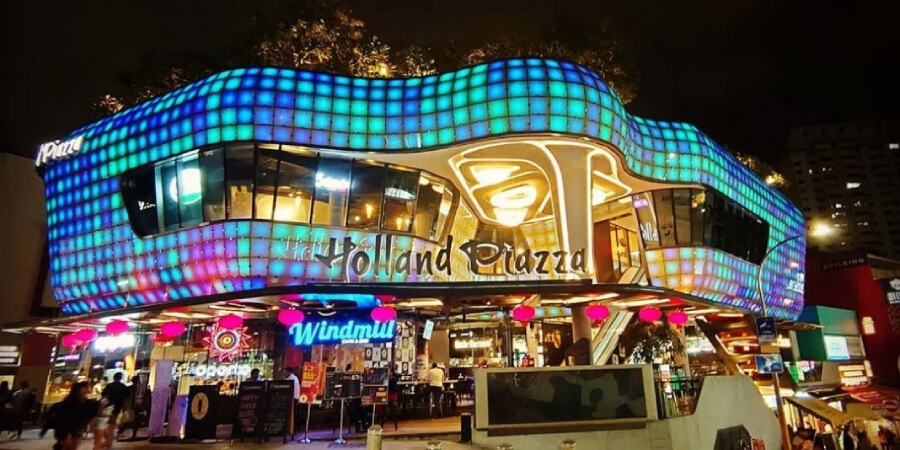
Holland Village is known for its lively and international atmosphere. It’s a popular area among expats, thanks to its variety of restaurants, bars, and shops. The area offers a balance between nightlife and residential tranquility, making it ideal for those seeking a dynamic yet comfortable environment.
Woodlands: tranquility and nature
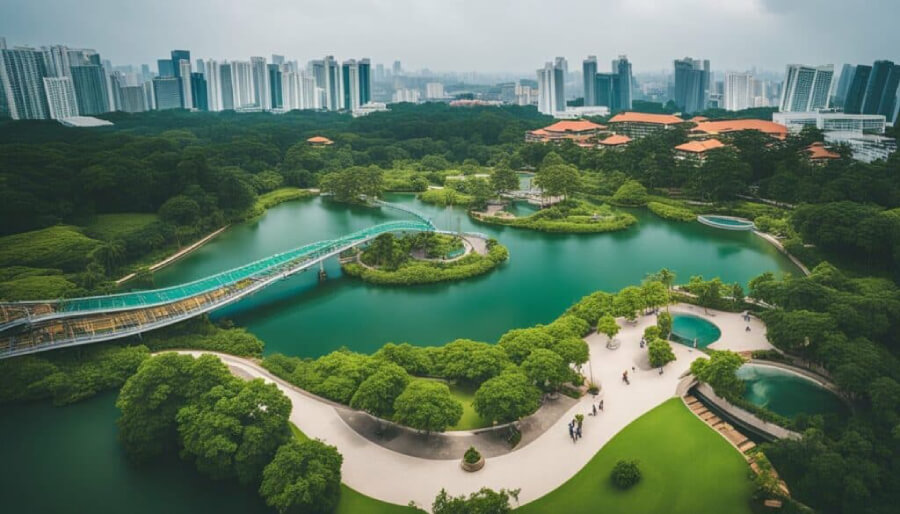
For those looking for an escape from the hustle and bustle of the city center, Woodlands offers a quieter environment close to nature. Located in the north of Singapore, it’s perfect for families and those seeking a more relaxed pace of life. Rentals here are generally more affordable, offering great value for money.
Time off and Culture: what’s it like living in Singapore?
Singapore is bustling with cultural and leisure activities. From its lush gardens like Gardens by the Bay to historic districts like Chinatown and Little India, there’s always something to explore.
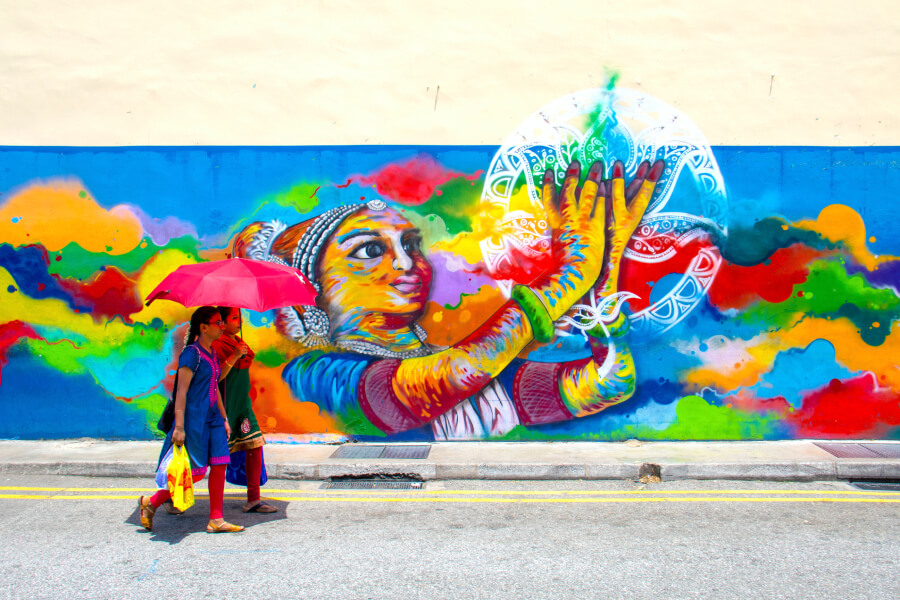
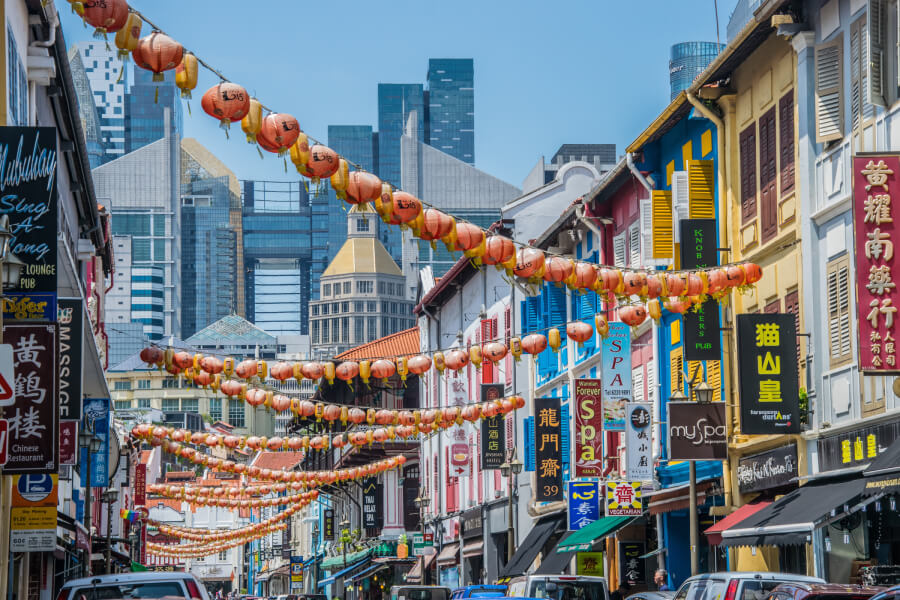

The city also offers an exceptional culinary scene, with a fusion of Chinese, Indian, Malay, and Western influences. For art lovers, museums like the National Gallery Singapore provide a dive into local and international culture.
Singapore hosts numerous events and festivals throughout the year, celebrating its cultural diversity. The Deepavali Festival of Lights, Chinese New Year, and the Singapore Food Festival are just a few events that enliven the city, offering unique experiences to both residents and visitors.
Despite being a modern metropolis, Singapore offers many opportunities for outdoor activities. Parks like East Coast Park and Sentosa Island offer beaches, cycling paths, and picnic areas, ideal for relaxing weekends or sports activities.
Procedures and Documents for relocating to Singapore
Relocating to Singapore requires careful planning, especially regarding visas and work permits. The city-state offers various types of visas, including those for professionals, entrepreneurs, and students.
It’s important to inform yourself in advance about the most suitable visa type for your needs and start the bureaucratic procedures well in advance.
Here’s an overview of the main visas and documents for relocating and living in Singapore:
- Tourist Visa: to visit Singapore for tourism (for less than 90 days), no specific visa is required. A valid passport for at least six months and a return ticket are sufficient. To extend your stay beyond 90 days, you can apply to the Immigration & Checkpoints Authority of Singapore;
- Study Visa: to undertake a course of study in Singapore, it’s mandatory to obtain a Student Pass. Students must enroll in a recognized institute, and once the application is approved, they can enter Singapore without a visa and collect the Student Pass upon arrival;
- Work Visa: the application for a work permit must be submitted by the future employer to the Ministry of Labor of Singapore. After approval, the Ministry will issue a temporary work permit, valid for one month, to enter the country and collect the final permit. Applications can be submitted either physically at the Work Pass Service Centre or online.
- Work Visa for Managers: the most common type of work permit is the Singapore Employment Pass, intended for executives, managers, and qualified professionals. There are three categories of Employment Pass: Q1 for a minimum salary of 3,000 Singapore dollars, P2 for at least 4,500 dollars, and P1 for at least 8,000 dollars. Less qualified workers should apply for the S Pass, for minimum salaries of 2,500 dollars;
- Generic Business Visa: for business trips to Singapore lasting less than 90 days, no visa is required. Upon arrival at the airport, a stamp will be placed on the passport, similar to that for students;
- Singapore Entrepreneur Pass: this visa is intended for those who wish to transfer or start a business in Singapore. The application for the Entrepreneur Pass must be submitted to the Work Pass Service Centre of the Ministry of Labor and is valid for one or two years;
Focus: residency and Citizenship in Singapore
To become permanent residents and live in Singapore, it’s necessary to apply to the Immigration Authority of Singapore. The Global Investor Program is a facilitated path for those intending to invest in the country.
To obtain Singaporean citizenship, you must be at least 21 years old and have lived as a permanent resident for at least two years. The citizenship application can be submitted to the ICA (Immigration & Checkpoints Authority).
Living in Singapore as an offsite: tips for Expats
For Italians and other expats, living in Singapore can be a rewarding experience. The city is very safe and clean, with an excellent public transportation system. Moreover, the international community is very active, making integration and making new friends easier.
There are numerous organizations and social groups in Singapore that offer support to expats. These groups are great for socializing, exchanging advice, and adapting more easily to new city life.
Singapore, as mentioned, is an economic hub with many career opportunities for expats, especially in the finance, technology, and commerce sectors. The city attracts professionals from all over the world, making it an ideal place for networking and professional development.
In conclusion: is living in Singapore a good choice?
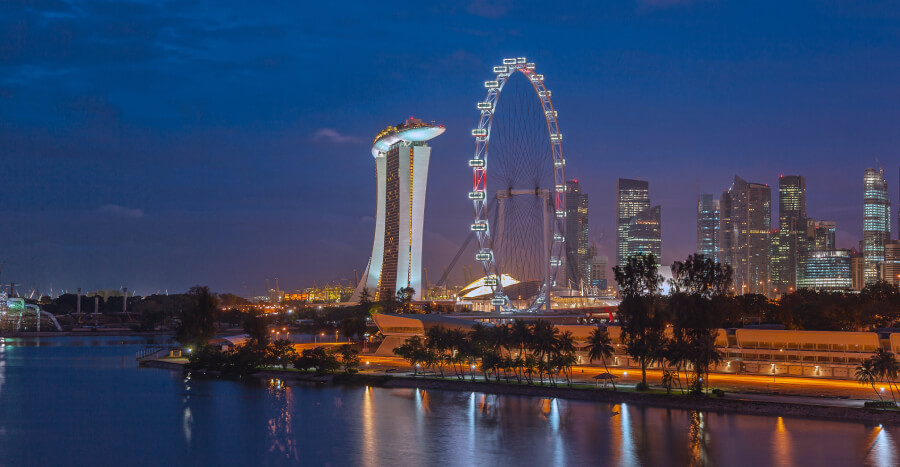
To live in Singapore, you can find a rental solution that meets all your needs; although it may be difficult to adapt to living in a new city and context, finding a rental apartment in Singapore is very simple thanks to the solutions available on our site. A new experience awaits you, and we are here to make it as simple as possible with our solutions and technology.
Visit our website and contact our team of experts, who will help you in these initial research phases: once you have understood the secrets of living in Singapore in your new daily life, don’t forget to keep up to date by reading our blog, where you will always find useful advice and constant updates.
If you are interested in having more information on all the opportunities you can take advantage of living in Singapore and further explore the initiatives proposed in the territory and the news on events, we recommend not to miss our sections entirely dedicated to advice on the best restaurants and the most interesting activities in the city.

